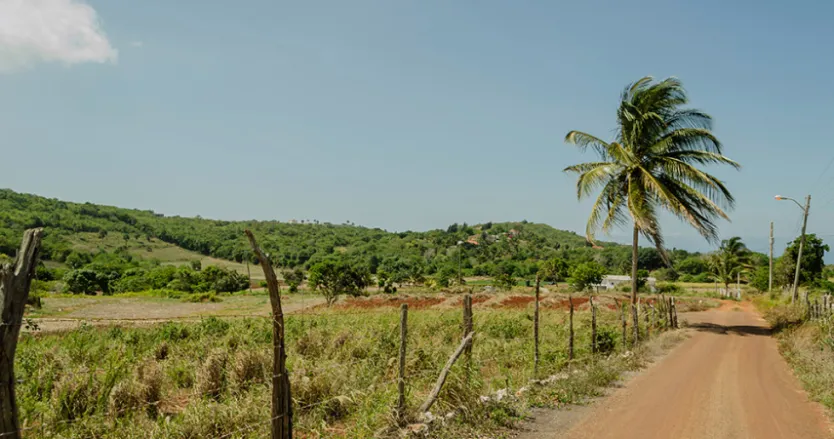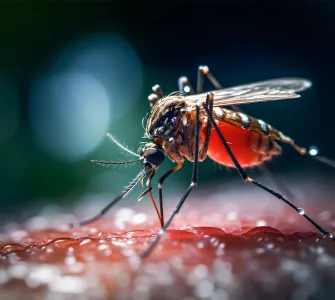Jamaica 2023 dengue outbreak


Jamaica is vulnerable to dengue and outbreaks are unfortunately becoming more common and intense.1-3 Climate change is believed to be one of the main reasons behind this – dengue is a climate-sensitive disease.3 The dengue outbreak in 2023 followed a record-breaking hot and dry summer and the government swiftly implemented various measures in response.3,4

Where
Jamaica: all parishes were affected5
The numbers as reported in September 2023
3147 infections, 9 deaths3
The contributing causes
First, there was a drought, which led to an increase in people storing water (often in containers ideal for mosquito breeding). Then came a record-breaking hot summer; high temperatures can speed up the lifecycle of dengue-carrying mosquitoes. Finally, the rain arrived, providing stagnant pools of water ideal for mosquito breeding3,6
The impact
Around 72 people per week were being admitted to already burdened hospitals3
Children aged between five and 14 were most often affected3
This may be due to how the dengue virus works. The dengue virus has four strains. This means if you have been infected in the past by one strain, you will be immune to that particular strain but not to the other three strains. The last dengue outbreak to occur in Jamaica (prior to this one) was in 2010 and was caused by a strain called DENV-2. In 2023, the outbreak was again caused by DENV-2, but because most children affected were born after 2010, they had not acquired immunity to this DENV-2 strain3,7
The public was urged to donate blood which is needed to help manage less common cases of severe dengue (supplies at the time were not enough to meet the increased demand)8
Emergency departments were under pressure, especially due to the presence of COVID-19 and the flu9
The response
“The Ministry and the Regional Health Authorities have made the necessary preparations for a possible outbreak.”
– Minister of Health and Wellness, Dr. Hon. Christopher Tufton4
Swift action
Around 500 temporary vector control workers were engaged and deployed across the island to high-risk communities along with 213 permanent workers. An additional 600 temporary workers were engaged to support mosquito breeding site removal and health education activities4
Government efforts to fight dengue included a fund of nearly $200 million. Part of this fund was specifically used to help rid schools of mosquitoes. Also, $2 million was allocated to each of the 63 constituencies for Members of Parliament to lead a community clean-up campaign10
Breeding site treatment, fumigation, removal of bulky waste and drain-cleaning exercises were conducted across the country4
Health center opening hours were extended4
The National Emergency Operations Centre monitored and reported on the outbreak4
Service fees were waived for children who used the University Hospital of the West Indies4
Looking ahead
The Jamaican government responded strongly, quickly putting many measures in place.4 This was recognized by the President of the Nurses Association of Jamaica (NAJ) who was “satisfied” with the government’s response to the outbreak, according to local news outlets11
However, it was suggested that despite reasonably good knowledge among the public about dengue, over three-quarters of residents did not use effective dengue preventative methods.12 The reasons for this inaction could be examined
A comprehensive, coordinated strategy will probably be needed to tackle dengue. Communities have a role to play a role in control efforts, scientists need to develop fresh approaches, and health workers should rely on proven methods
References
Lue AM, et al. Front Med (Lausanne). 2022;9:889998.
Henry S, et al. Int J Environ Res Public Health. 2020;17(9):3156.
The Guardian. Available at: https://www.theguardian.com/global-development/2023/nov/15/jamaicas-dengue-fever-outbreak-shows-the-deadly-effects-of-record-heat. Accessed November 2023.
Government of Jamaica. Ministry of Health and Wellness. Available at: https://www.moh.gov.jm/health-ministry-declares-dengue-outbreak/. Accessed November 2023.
US Embassy in Jamaica. Available at: https://jm.usembassy.gov/health-alert-dengue-fever-outbreak-declared-in-jamaica-5-october-2023/. Accessed November 2023.
Red Cross Red Crescent Climate Centre 2023. Available at: https://www.climatecentre.org/713/seasonal-rain-and-warmer-temperatures-blamed-for-a-unprecedenteda-dengue-spike-across-central-america/. Accessed December 2023.
Soo KM, et al. PLoS One. 2016;11(5):e0154760.
National Blood Transfusion Service. Available at: https://nbts.gov.jm/give-blood-to-fight-dengue. Accessed November 2023.
Jamaica Observer. Available at: https://www.jamaicaobserver.com/news/triple-threat-2/. Accessed November 2023.
Jamaica Observer. Available at: https://www.jamaicaobserver.com/latest-news/holness-announces-200-m-programme-to-tackle-dengue-outbreak/. Accessed November 2023.
Jamaica Observer. Available at: https://www.jamaicaobserver.com/news/naj-satisfied-with-health-ministrys-dengue-fight-opposition-throws-in-support/. Accessed November 2023.
Shuaib F, et al. West Indian Med J. 2010;59(2):139-46.
























